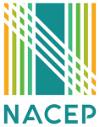High School Partnerships
Northeast Iowa Community College offers current high school students a variety of ways through concurrent enrollment, placement in college credit (PICC), career and technical programs, articulations, and others to earn college credit while still in high school.
Benefits of earning college and high school credit simultaneously:
- college tuition savings
- reduction of course duplication
- get a head start on your college education
- career pathway exploration and career focus
- opportunity for students to smoothly transition into college coursework
- establishment of a college transcript that leads to a NICC degree or transfers to a four-year college or university
- NICC loyalty award eligibility
High School Partnerships are guided by Senior Year Plus and the National Alliance of Concurrent Enrollment Partnerships (NACEP).
Resources
 The College's concurrent enrollment program is accredited by the National Alliance of Concurrent Enrollment Partnerships. These classes enable high school students who have met the eligibility requirements of the College and high school to take college coursework. High school instructors who have been approved by the College teach these courses using the NICC curriculum. If you are interested in concurrent enrollment courses, meet with your high school counselor and complete the online application.
The College's concurrent enrollment program is accredited by the National Alliance of Concurrent Enrollment Partnerships. These classes enable high school students who have met the eligibility requirements of the College and high school to take college coursework. High school instructors who have been approved by the College teach these courses using the NICC curriculum. If you are interested in concurrent enrollment courses, meet with your high school counselor and complete the online application.
The PICC program allows high school students to enroll part-time in college credit courses at Northeast Iowa Community College prior to high school graduation.
Students earn both high school and College credit for successfully completing college-level coursework. These post-secondary credits are transferable to other colleges and universities depending on the degree requirements of that institution. High school students must meet the requirements and guidelines for the NICC class for which they are registering including a qualifying ACT®, ALEKS ® Math or ACCUPLACER® placement score. Students must also meet the academic requirements of the school district along with minimum proficiency cut scores in reading, math and science, based on their Iowa Assessments.
If you are interested in PICC courses, meet with your high school counselor and complete the online application.
Many high school students are undecided on a future career and that is okay, you're not alone. Exploring the types of careers that interest you will help set you up for success. High school students can participate in a Career Academy to fulfill Northeast Iowa Community College (NICC) degree requirements, gain hands-on skills and begin their path towards a career.
Early Admission Academies allow students to enroll in a year-long sequence of courses to fulfill degree requirements in a specific program.
Calmar, Automotive Mechanics
Calmar, Carpentry
Calmar, Computer Science and Security
Peosta, Automotive Mechanics
Peosta, CNC
Peosta, Welding I
Peosta, Welding II
Students interested in a high school Career Academy should meet and discuss next steps with their high school counselor or NICC College and Career Coach.
Student Benefits
- Flexible: Hands-on, face-to-face and online options available.
- College Credit: You can earn college credit while exploring career options of interest.
- Work-based Learning: Learn about your career interests through job shadows, interviews, mentorships and more!
Business Benefits
- Awareness: Help the future workforce understand the unique features of your career or industry.
- Connection: Partner with the College to connect with high school students to generate excitement for career fields.
- Community Involvement: Contribute to your community by guiding the prospective workforce.
Articulated courses between a high school and Northeast Iowa Community College allow students to receive college credit in career and technical programs provided they meet the agreed-upon core competencies and performance levels. Competencies are agreed upon between the high school, College instructors and the department dean. Credit is entered on a NICC transcript after the student has successfully completed 12 NICC credits post-high school. Students must attend the College within 12 months of high school graduation to be eligible for articulated credit. Articulated courses do not contribute to the student’s NICC grade point average, but do satisfy specific program requirements. Learn more about the articulation process.
Coordinators with the College High School Partnership office to provide assistance in developing and improving career and technical programs (CTE) in Region 1 high schools. To ensure schools meet requirements for state and federal Perkins funding, the coordinators work closely with the Iowa Department of Education and Keystone AEA.
Each fall and spring, the College and Keystone AEA partner to offer professional development opportunities to Region 1 CTE teachers. Other career and technical events occur throughout the year.
In Iowa, high schools are required to offer three units (one semester of class equals 0.5 unit) in four of the six CTE areas:
- Agricultural, Food and Natural Resources
- Applied Science, Technology, Engineering and Manufacturing
- Business, Finance, Marketing and Management
- Health Science
- Human Services
- Information Solutions
Region 1 high schools are currently in the process of developing programs of study and technical skill assessments to achieve compliance with federal Perkins funding requirements. Schools are encouraged to contact their High School Partnerships coordinator prior to a Department of Education site visit regarding CTE requirements.
Contact Us
High School Partnerships
IT Building Room 205E, Peosta
563.562.3263, ext. 2320
